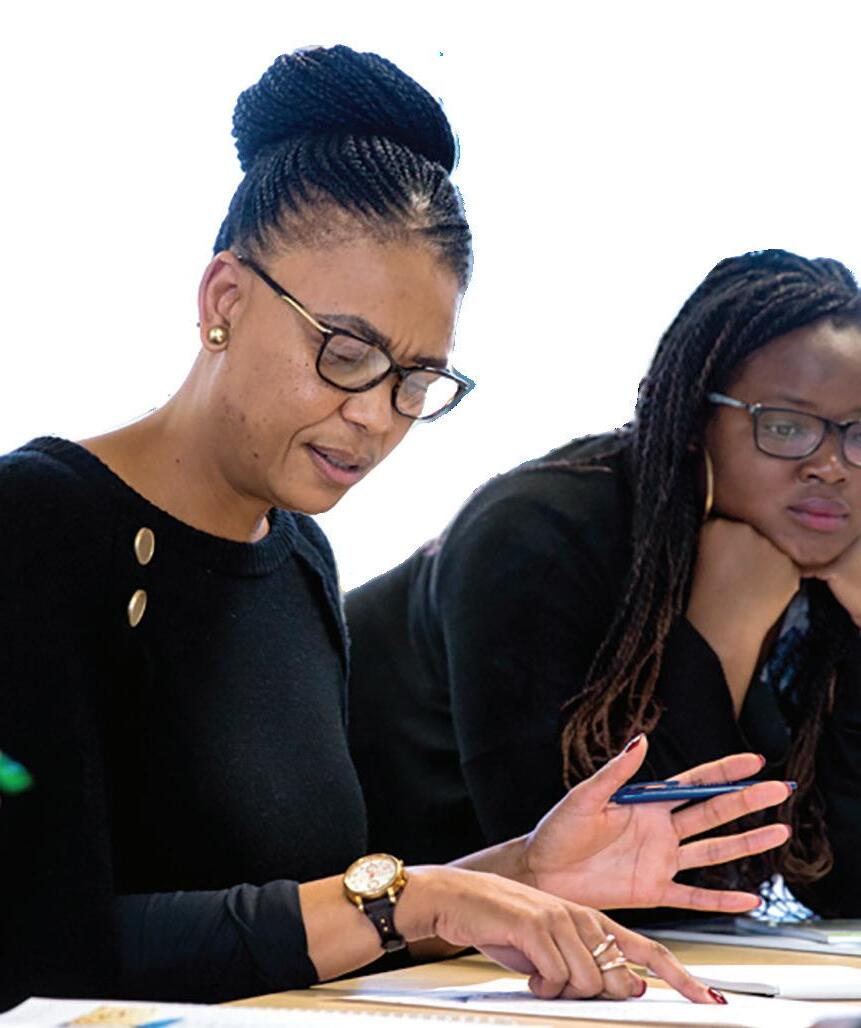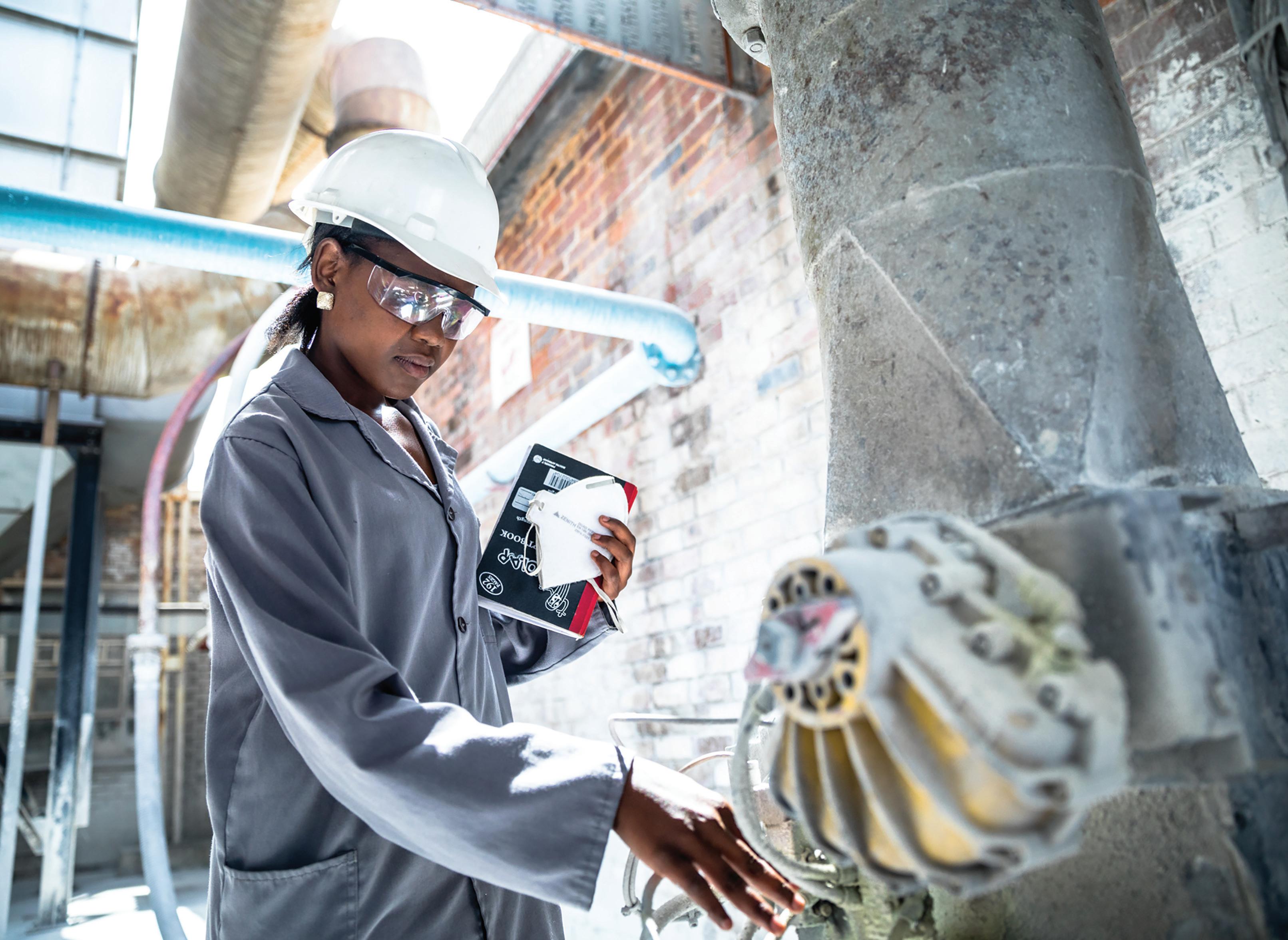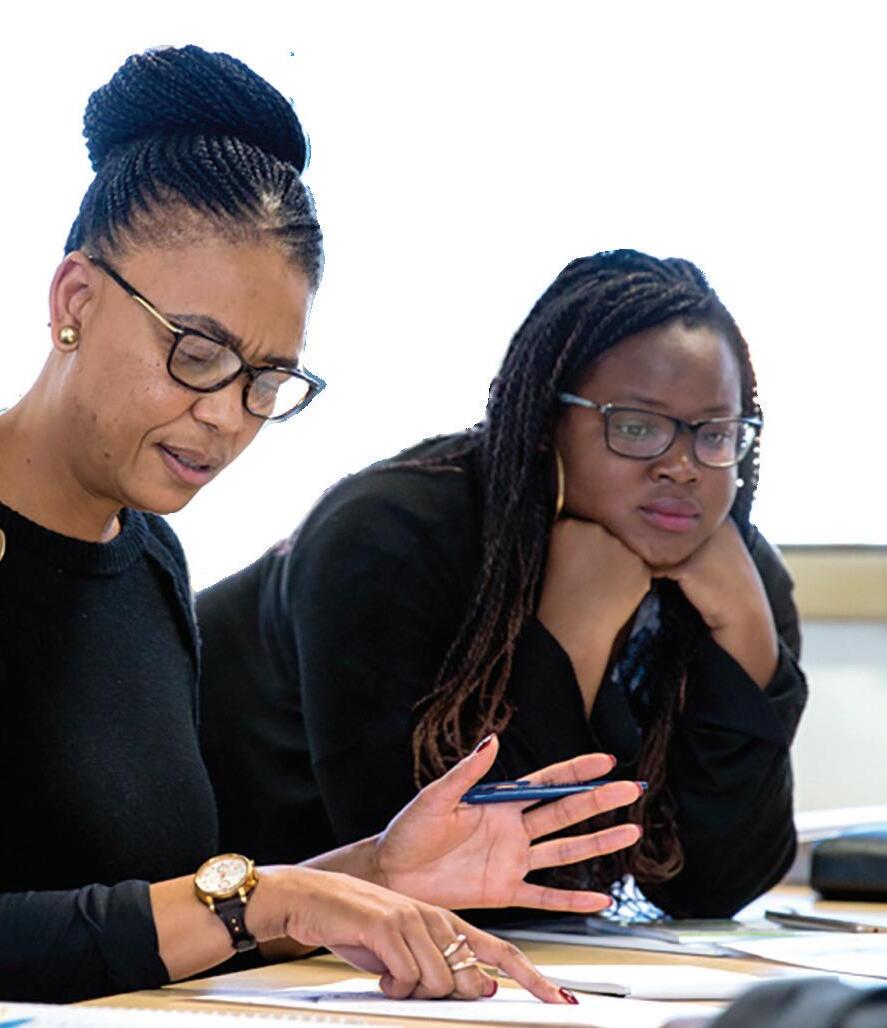
2 minute read
Policy implementation key to Gender equality
Energy is central to addressing nearly every major challenge and opportunity the world faces today – jobs, security, climate change, food production. Energy efficiency and energy saving have the potential to address the crippling impacts of the spike in energy prices, strengthening energy security and tackling climate change.
Energy efficiency is also of particular importance to South Africa, where the current Stage 4 loadshedding is estimated to cost the country R1bn per day. This again highlights the importance of ensuring equal participation by men and women in the sector to enhance the capacity of the country to address energy and climate challenges.
Advertisement
The international award-winning Industrial Energy Efficiency (IEE) Project is one of the initiatives in the country contributing to the increase in the number of women participating in the sector.
With gender mainstreaming cutting across all its activities, the project strongly supports the UN and SA’s focus on gender equality.
Since April 2011, 39% of the 6 000-plus candidates who successfully completed training courses in Energy Management Systems and Energy Systems Optimisation were women. Women also played a significant role in the overall impact and achievements of the project. To date, more than 450 industrial companies have been assisted to save 6.5 TWh of energy – equivalent to five years of load shedding at the 2019 level of 1.352 TWh. This translates to cumulative cost savings of R5.3 billion and GHG mitigation of 6.4 million tons of CO2e in these companies.
An independent study into the impact of the IEE project on gender mainstreaming in the industrial energy efficiency sector in South Africa confirmed that the project has made a substantial contribution to promoting gender equality and advancing women’s participation and role in the sector.

It also recommended that future projects should build on the foundation established by the project, and pursue transformative goals to address the structural gender barriers persisting in the sector.
The study also found that, although the SA government prioritises policies and programmes intended to promote gender equality and the empowerment of women, implementation is still lagging. The recently adopted Energy Sector Women’s Empowerment and Gender Equality Strategy developed by the DMRE is an important instrument to drive equality in the sector.

The energy sector is still male-dominated, but the study indicated that it has changed significantly over the past 10 years, mostly driven by policies, initiatives like the IEE project, global shifts to ESG, and requirements for financing. Companies are starting to see the benefits of having women on their teams, and women have more skills, confidence, and have increased their networks and access to opportunities.
According to the study, approaches to promote gender equality in the sector tend to focus on increasing women’s participation. However, this does not necessarily address the root causes of gender inequality and reshape unequal power relations, which are important requirements for transformative change.
There are also still significant differences in the view of men and women on the barriers facing women in the sector, including the lack of women in leadership positions, lack of women-headed projects, lack of time and resources, lack of access to finance, limited awareness of job opportunities, and sexual harassment in the workplace.

UNIDO is currently exploring initiatives with partners to address key recommendations from the study, inc luding improving sex-disaggregated data collection, management, and research to support policy development and implementation for the empowerment of women in the sector; addressings specific mentorship needs; promoting gender equality in the workplace; and contributing to national capacity building for gender equality and women’s empowerment.



